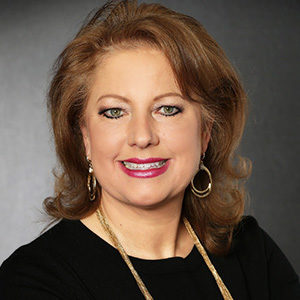Working with a board of directors is a critical aspect of association management, and one of the most important relationships you’ll foster as an association professional. Strong board relationships directly contribute to the success of the organization, so it’s essential to get to know your board members on a deeper level. But what exactly should you know about them, and how can you build those relationships?
Why You Should Get to Know Your Board Members
- Fostering Trust and Collaboration
A healthy working relationship between the Executive Director and board begins with trust. When you understand each board member’s motivations, leadership style, and personality, you can build trust and foster collaboration. The board sets the organization’s direction and knowing them well enables you to better understand their priorities and how to help them achieve their goals. - Leveraging Board Strengths
Each board member brings distinctive skills, experiences, and networks. By learning their backgrounds and areas of expertise, you can assign tasks and projects where they’ll excel. This approach not only amplifies the board’s impact but also enhances each member’s satisfaction in their role. - Navigating Conflict Effectively
Understanding each board member’s communication style and perspectives helps you anticipate and manage conflicts more effectively. By identifying what motivates each person, you can address potential issues early on, ensuring a productive working environment.
What You Should Know About Your Board Members
- Professional & Personal Background
Knowing their professional background and past leadership experiences can help you understand the lens through which they view your organization and its challenges. And don’t underestimate the value of getting to know their personal interests. Insights into their hobbies or family background, for instance, can make your interactions more meaningful and strengthen your overall relationship. - Motivations and Interests
Why did they join the board? What are they passionate about within the organization? Understanding their “why” allows you to align their efforts with what they care about most, resulting in a more engaged and effective board. - Communication Style
Do they prefer detailed reports, or are they more comfortable with big-picture overviews? Are they introverted or extroverted in meetings? Knowing how your board members communicate and make decisions will improve both your day-to-day interactions and long-term strategic planning.
How to Get to Know Your Board Members
- Schedule One-on-One Meetings
Nothing beats face-to-face (or virtual) time to connect. Schedule regular one-on-one meetings with each board member, even if it’s just for 20 minutes. Use this time to discuss not only organizational issues but also their individual goals and interests. - Leverage Informal Communication
Send a quick text or an email to check in on something personal or professional. Maybe they mentioned their child’s soccer game last week—ask how it went. Small touchpoints can go a long way in building rapport. - Conduct Board Orientation and Onboarding
For new board members, having a formal onboarding process is critical. This is a prime time to learn about their motivations, goals, and concerns. Use this process not only to educate them on the organization but also to build a foundation for a strong working relationship.
Final Thoughts
Getting to know your board members is an investment in the long-term success of your organization. The more you understand their backgrounds, motivations, and communication styles, the better equipped you’ll be to foster collaboration, leverage strengths, and navigate challenges. As the saying goes, “People do business with people they know, like, and trust”—and the same holds true for working with your board. By building meaningful relationships with your board members, you’ll help create a more engaged, collaborative, and successful team.

Wendy King, CAE, CVA
Wendy King, CAE, CVA joined the RGI team in 2020. She brings 10+ years of association experience and previous background in marketing, development and events to her role as Executive Director. Her strengths include developing strategic relationships, building collaborative environments, strategic planning, and fostering strong boards through leadership development.

